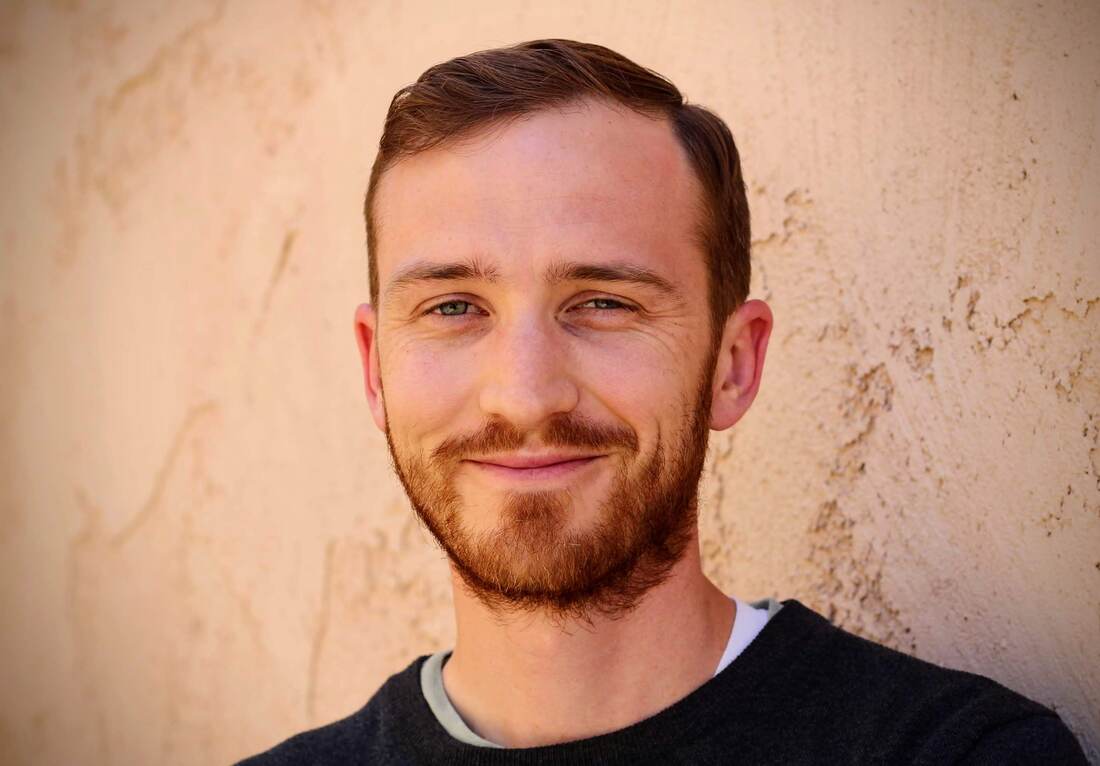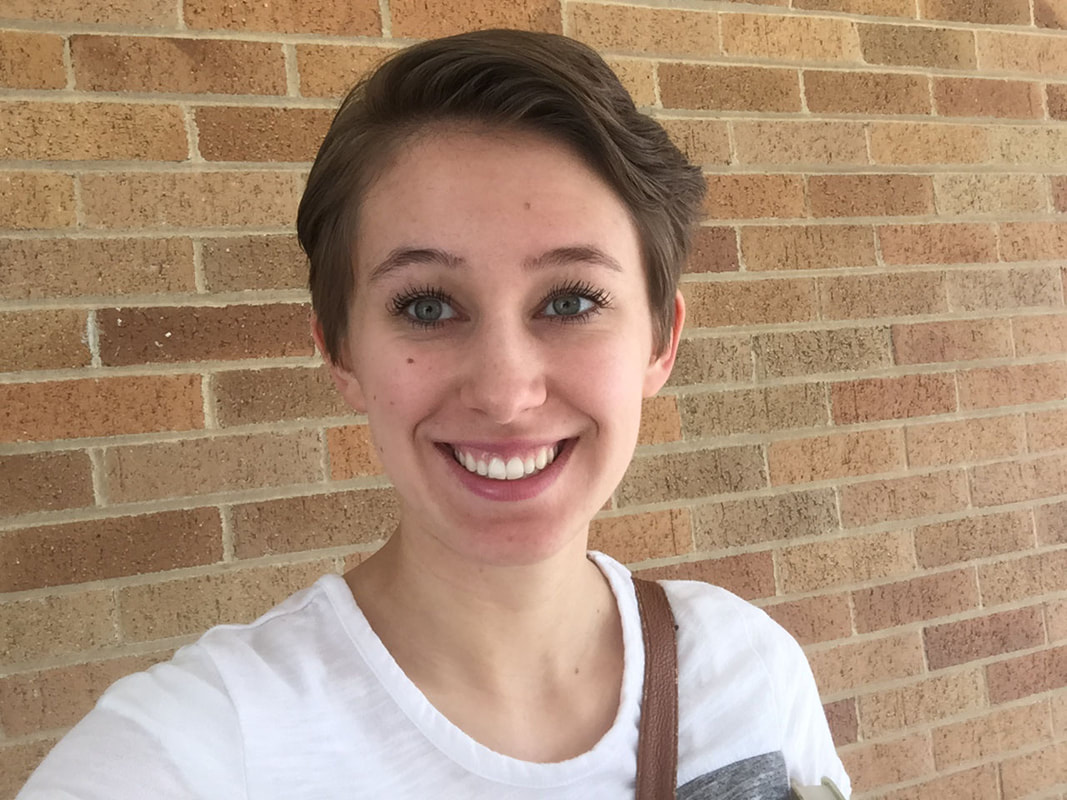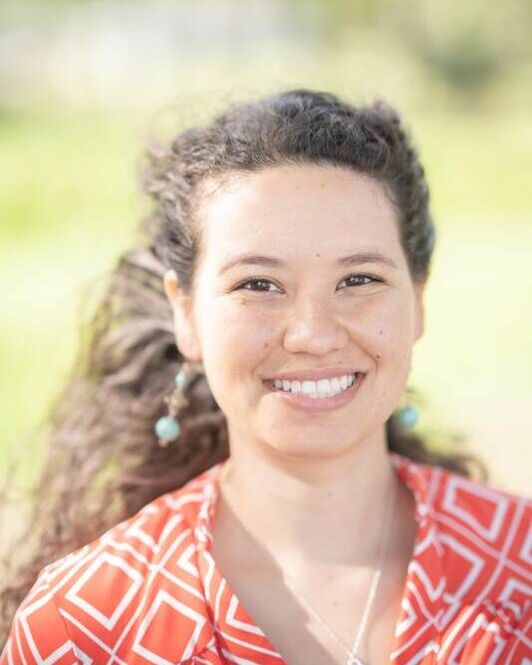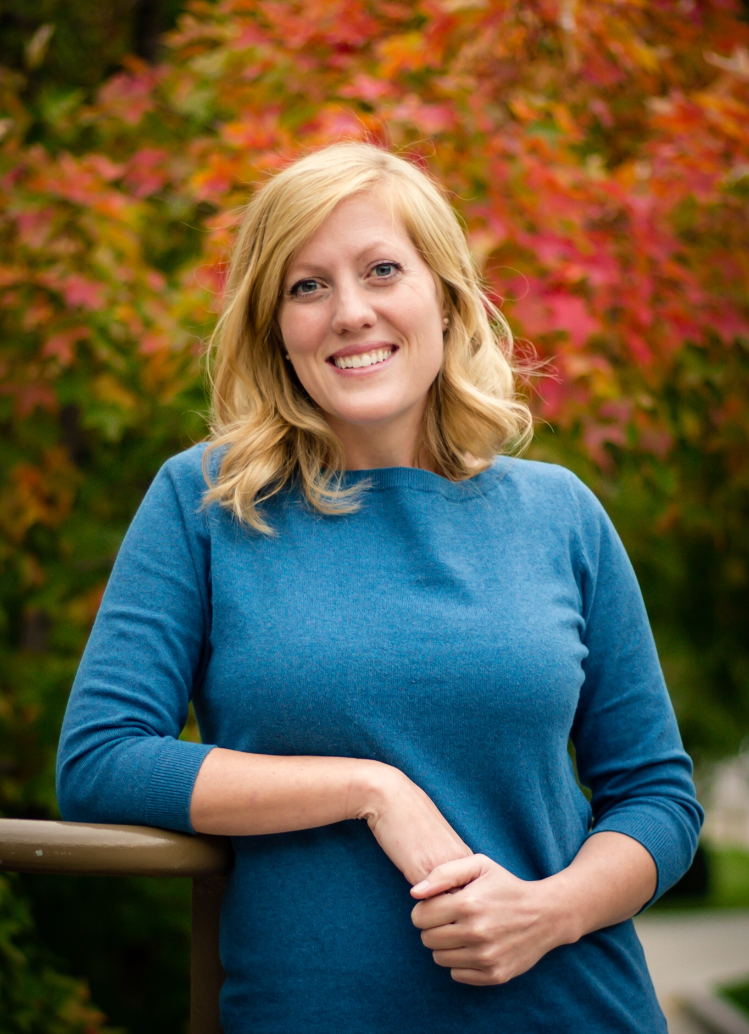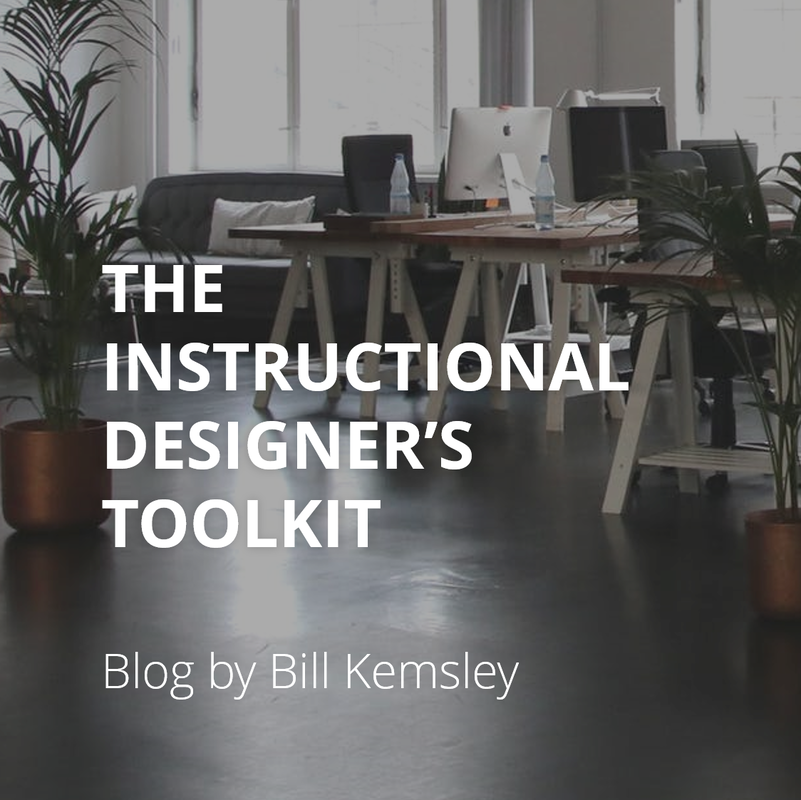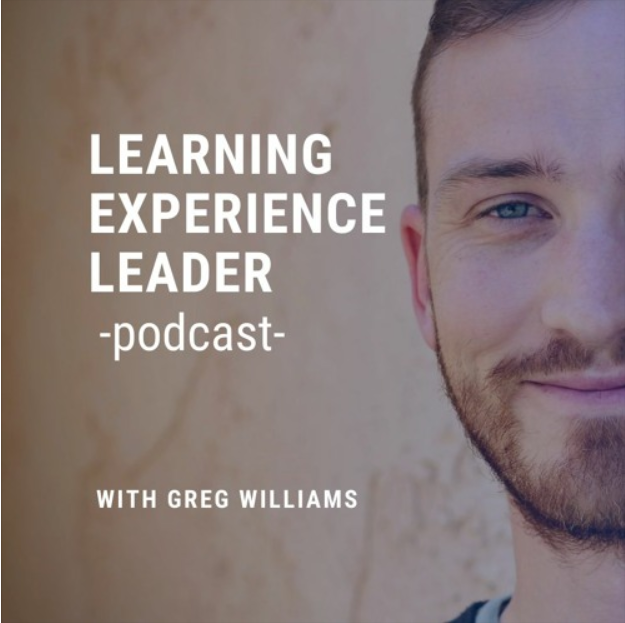|
Why did you purse a career in the instructional design and technology field?
I was entranced by instructional design because it was a practical way to work with people and make an impact on the world. I love psychology, but I didn’t want to do therapy. This was a great way to get to do people-oriented research and design. What are some of your day-to-day responsibilities in your roles? Create and update online courses taught live through Zoom. Teach 1-day courses online through Zoom. Create and manage exams. Do UX research. Write and publish results. How have you found your jobs? What advice do you have for someone trying to find a job in the instructional design and technology field? I found my current role on LinkedIn by following an organization I was really interested in. Advice: follow companies you want to work for, reach out and connect with people at those companies, ask for job opportunities even if there is nothing posted. In what ways did your graduate program prepare you for your career? 1. It gave me the time and resources to solidify my personal opinions and values about learning and instructional design. 2. It taught me about doing research with people that’s applicable in many contexts (applied or academic). Why did you pursue a career in the instructional design and technology field?
To make a long story short, I grew to love the field and the way instructional designers think. I like the interplay between designing with a wide, learner-centric view and then getting into the nitty-gritty details of development. I love being able to develop and use soft skills and technology/computer skills every day. I never have to shelf creativity or logical organization - they are both essential. I love being able to work with and pick the brains of subject matter experts across all domains and subjects. Mostly, I love learning and I love having a job where I have to learn something new every day and I get to help shape learning experiences that other people can enjoy. What are some of your day-to-day responsibilities in your roles? It depends on my current project. It can vary from designing and implementing live virtual soft skills training to developing asynchronous tool training. Other days I am running statistical tests on the data we collect from those trainings or creating reports of my findings from my analyses. I also work closely with a team of other learning engineers so I spend a good amount of time collaborating, reviewing, and brainstorming with them. How have you found your jobs? What advice do you have for someone trying to find a job in the instructional design and technology field? Mostly through connections with IP&T faculty and alumni. I'm pretty new to the field, so most came from connections through the university. For example, one was an internship posted on the IP&T listserv. My current position was through asking an alumni for any connections he had. In what ways did your graduate program prepare you for your career? It gave me opportunities to practice in a realistic, mentored setting on real projects. I also gained a foundational understanding of processes and theories as they should be applied in an ideal setting, which has allowed me to apply them in the workforce with more consistency. It revamped my statistical experience, which has been a differentiator for me. Finally, I was able to identify and develop areas that were/are weaknesses in my own instructional design abilities (as well as areas that are my strengths) enabling me to continue to grow in the future. Companies: Henry Schein One Job Titles: Content Developer Why did you pursue a career in the instructional design and technology field?
I love taking complicated processes and making them simple. I also like taking really ugly, messy instructions and making them pretty. What are some of your day-to-day responsibilities in your roles? Producing educational webinars, documenting software updates, writing blog tips How have you found your jobs? What advice do you have for someone trying to find a job in the instructional design and technology field? Found jobs on Indeed.com and LinkedIn. Advice: Look for companies where IP&T alumns work. There are a few alumns at Henry Schein One, and that was a great talking point in my interview. The alumns could advocate for me because they understood a little bit of my background. Why did you pursue a career in the instructional design and technology field?
I'm curious about the various ways people learn, why we choose to learn, and how experiences can be structured to enhance, encourage, or direct learning. I am curious what the most efficient and effective ways are to process information. I wonder how social/soft skills translate into other areas of life apart from where they may initially have been developed (for example, from sports to the classroom). I also wanted to have the ability to work remotely and on a part-time basis as I wanted to harmonize my desire to work and be home with my family and play sports. What are some of your day-to-day responsibilities in your roles? Research, create, and ideate content for the ed-tech aspect of Lucid. I have weekly Zoom meetings to stay aligned and/or collaborate with other Lucid for Education team members. I create student templates, instructions, lesson plans, with and for their software (Lucidchart and Lucidpress). How have you found your jobs? What advice do you have for someone trying to find a job in the instructional design and technology field? An email was sent out to the listserv looking for an intern for Lucid with the possibility of being remote. Although I was now graduated, I applied for the internship. They decided to create a new position and hire me. I completed the masters in a roundabout way. I did one year as a full-time student, took a two year break to teach middle school, and then finished the degree in 2 more years going part-time as I also had two children during that time. Even though I did not complete an off-campus internship, I feel I was able to get a job because of my teaching experience, knowledge of teaching and learning theory, design theory, and ability to write directions. Part of my interview and job application included design activities. In what ways did your graduate program prepare you for your career? Going through the process of my design project was the best preparation. Having a process that I had gone through to design something helped me learn what worked for me to complete big projects. I also learned how to manage my design documents and be specific with my design and theory choices. Besides experiencing a design process, two skills that I developed that I use all the time are 1) creating clear and succinct emails - as I work remotely and that is my main form of communication, and 2) learning how to evaluate my own work and ask for specific feedback. I feel my project chair was vital in helping me develop all of these skills. Why did you pursue a career in the instructional design and technology field? I didn't really know! But it seemed like the best field where I could do a blend of interdisciplinary things such as applied art, design, technology, and psychology. I think it seemed like a great place to help make an impact for good on people. What are some of your day-to-day responsibilities in your roles? Managing projects and all that entails. Designing, building, reviewing, evaluating content. Working with stakeholders and building alignment on vision and how the learning products we deliver fit in. Developing knowledge articles and information structure for how information is organized to make it easily accessible. Managing learner profiles in LMS and troubleshooting issues. Interviewing and observing learners and developing insights to inform future designs. How have you found your jobs? What advice do you have for someone trying to find a job in the instructional design and technology field? I read "2 hour job search" and applied those principles, I highly recommend that! Also take time to meet people in many fields and disciplines, and don't stop learning things in the field and sharing those with folks - that helps. In what ways did your graduate program prepare you for your career? Introduced me to the longstanding issues of the field and the conversations that have been going on for a long time. Helped me become a critical thinker and also gave me the tools to begin applying great design principles to my work. It was awesome!
Why did you pursue a career in the instructional design and technology field?
I liked the design process and I was interested in learning because I had to discover a lot about learning on my own to find workarounds for dyslexia. What are some of your day-to-day responsibilities in your roles? As a product manager I need to recognize the demand and make the business case for software products. I have to create plans for market validation, design, development, go to market, and continuous improvement. I generally manage the day to day work of software engineers, QA engineers, and data scientists with agile methodologies, though those team members usually report to other managers. As a PM you have to use influence to achieve product success without being the supervisor of most of your team. I manage the product, not the people. I also have to represent the company at conferences in presentations or at the vendor booths. I also use my research background for product marketing to create white papers or organize research studies with client institutions. How have you found your jobs? What advice do you have for someone trying to find a job in the instructional design and technology field? It is important to have a good resume (use a paid service to evaluate your resume, get it aligned to the key words for your industry, etc.). You should over prepare for your interviews, practice role playing with someone more experienced than you. Come up with a list of at least three questions about the company or role for each person you interview with. Make a bullet list of your accomplishments and their attributes and practice taking about them in the context of answers to a variety of questions. Get comfortable talking about yourself in short power statements (e.g. I am an "x", a "y", and a "z", for example......etc., this shows how I can bring my ability for x, y and z to your organization). Be prepared to say in an interview what you would do to help improve some important aspect of the company, product or service in the role you are applying for. Applying for jobs directly without an inside connection to the company isn't usually a successful strategy, especially in your early career. You must network. Connect with everyone in your circles on LinkedIn (your ward, your program, your parent's ward, your coworkers, people you meet at conferences, etc.) as you build you network, you can look in their contacts and ask for informational interviews or introductions to people in the industry or at the companies you are interested in joining. Set up job alerts for roles you are seeking but always look for a way to connect with someone at the company where you would like to work. An internal referral is the best way to get an interview. Once you get your job, be sure to reach back out to the people who helped you and networked with and thank them. Find a mentor. Lastly, create a close knit group of people you trust in your field and meet with them regularly to share best practices and discuss how to overcome challenges you are facing. In what ways did your graduate program prepare you for your career? I went into the corporate instructional design world after my masters because I was worried about a low pay ceiling in higher education. I discovered software product management through some projects at work and decided that I wanted to make a transition. I initially tried to get into some top business schools but was not successful so I started the IP&T PhD program where I discovered MOOCs and Learning Analytics. My research emphasis opened the doors to Stanford where I designed project-based learning MOOCs for large scale online classes. I had become interested in the EdTech entrepreneurship world so when a professor I worked with at Stanford asked me to join one of his student's startups I made the jump. I founded DropThought Education, a student feedback platform, as part of a parent startup DropThought. After DropThought's acquisition, I wanted to stay in the analytics space and focus on helping drive social justice, upward mobility, and student success in higher education so I joined Starfish (Hobsons) as an analytics product manager for the academic advising platform. I then transitioned to my current position at Burning Glass where I manage workforce insights products for higher education clients. I use my instructional design background every day in the design process for product management as well as in how I think about user personas, product marketing, customer adoption, and customer training. The learning theory/learning sciences concepts I acquired in my Ph.D. have provided me with important insight and credibility that have helped my EdTech employers. The research and statistics background from the program has been critical to my analytics career and in helping my EdTech employers stay honest in their efficacy claims. Companies: Utah Transit Authority, DevMountain Job Titles: Instructional Designer Why did you pursue a career in the instructional design and technology field?
Change careers and to get into helping others learn. What are some of your day-to-day responsibilities in your roles? Reviewing courses, meetings, revisions to courses, some media creation. How have you found your jobs? What advice do you have for someone trying to find a job in the instructional design and technology field? Focus on one career path. Don't forget to take assessment classes, they come in real handy. Get lots of real world experience, internships, and others. In what ways did your graduate program prepare you for your career? It did it really well with tools and getting me more used to the various uses of technology. Why did you pursue a career in the instructional design and technology field?
I'm really passionate about creating great learning experiences. What are some of your day-to-day responsibilities in your roles? Developing e-learning courses, content creation, working with SMEs, developing assessments. How have you found your jobs? What advice do you have for someone trying to find a job in the instructional design and technology field? Mostly through networking! Making connections is key. In what ways did your graduate program prepare you for your career? The skills I have learned in IP&T are very similar to what I use in my work. Why did you pursue a career in the instructional design and technology field?
As a missionary, I developed a love for teaching and preaching, or in other words, teaching in a way that led to deliberate action. This continued when I returned home and worked at the MTC and started coaching cross country. I loved being able to discover an individual's goals and aspirations and then, help them understand the path that was required to achieve those goals and recognize how and why they needed to take those steps in the process. What are some of your day-to-day responsibilities in your roles? Varies a lot. Some days are filled with meetings where I'm working with internal experts to define competencies or create assessments for a particular job role. Other days, I work a lot with other Learning Engineers to design and develop meaningful learning experiences that drive toward those competencies. Other days, I am meeting with leadership outlining strategy for how we can structure internal learning at our company and external learning with clients and how we might commodify and deliver our instructional objects. Then still, there are days that I am buried in item analysis data trying to clean up existing assessments and develop newer, more efficient assessment tools. How have you found your jobs? What advice do you have for someone trying to find a job in the instructional design and technology field? My current job is at the company I interned with while still in the program. I found that position through a family member. However, they were not hiring at the end of my time there so I ultimately took a Job at Canopy, which I found via Glassdoor. My advice is to anyone looking for a job in the field is two-fold:
In what ways did your graduate program prepare you for your career? The more I've gotten into the work of instructional/learning design, the more I have loved it as a beautiful blend of science and art. I think the graduate program coursework helped provide that "science" component. Courses helped me understand the systematic approaches we can take to develop learning experiences, whether in understanding our target learners or project constraints, identifying appropriate assessment instruments, etc. My final project and my internship touched a bit more of that "art" or "human" side of things. Of how all this actually comes together in real, meaningful, and interesting ways. Observing different LinkedIn conversations around the topics of instructional design and learning and development, I can't help but feel like this balance of science and art is continually knocked out of whack. I see individuals emphasizing the importance of having every principle of adult learning memorized while others take instructional design to mean little more than graphical design or eLearning development. You need science and art. I think the experiences I had in the program highlighted that for me. Why did you pursue a career in the instructional design and technology field?
I was interested in the psychology of learning and designing learning experiences, so I got a degree in Instructional Psychology and Technology. Being in the program led to getting an internship in the field, which I enjoyed a lot more than I thought I would. So that's where I am now. What are some of your day-to-day responsibilities in your roles? Recently my projects have revolved mainly around creating modules geared toward helping employees and clients use our company's software. I spend a lot of time working with project sponsors and SMEs to determine the desired learner competencies for the given subject, creating a scoping document to determine assessment items that will target those competencies, working with SMEs to create the questions, then fortifying the module with supporting information, video, interactions, etc. How have you found your jobs? What advice do you have for someone trying to find a job in the instructional design and technology field? I love my job. It's an awesome company that I would never have known existed if I hadn't seen an IP&T alum's email about a summer internship at his company that he sent out through the listserv. My advice would be to GET INVOLVED. There are so many awesome people to network with, people in the program, IP&T alumni, professors, people across campus, professors' contacts. As you meet them and keep your ears open, you'll hear about some awesome opportunities. Don't worry too much if it's not what you want to end up doing forever, because ... well ... do we really know what we want to end up doing? In what ways did your graduate program prepare you for your career? Probably the biggest way that my program prepared me for my current responsibilities was in helping me learn the basics of instructional design. I knew nothing about determining learner competencies or developing expert performance models or working with SMEs before my grad program. Good grief! I'd never even heard of Storyline! So the program gave me some very basic skills that are essential in my current role. There are also a host of soft skills that I needed to learn—and am still learning—that are important to my current role, such as being able to get feedback even when I don't feel ready to share my incomplete project, or working with team members who may have very different design ideas than I do. Project management is also huge in my role. And again, I would say that the network established through the program is incredibly helpful. Why did you pursue a career in the instructional design and technology field?
I wanted the opportunity to support social change and I think education is one of the best ways to do that. When we harness technology especially, we can reach even more people. What are some of your day-to-day responsibilities in your roles? Consult with clients to understand their learners, objectives, and content. Organize and adapt content, and create strategies to delivery in an engaging, interactive, and meaningful way. How have you found your jobs? What advice do you have for someone trying to find a job in the instructional design and technology field? I've found projects on online job boards, the listserv, and through networking with classmates and colleagues. I recommend staying open to opportunities, especially if they feel like a bit of a stretch for your skills and experience. In what ways did your graduate program prepare you for your career? IP&T gave me a theoretical and practice foundation in instructional design, as well as many design experiences in a comfortable yet challenging learning environment. Classes in the program as well as working with faculty helped me to get my first job which helped me improve my skills and my confidence and prepared me for the work I've done since. Why did you pursue a career in the instructional design and technology field?
I noticed a need for it, especially in technical fields. I wanted to improve technical education (particularly in engineering). What are some of your day-to-day responsibilities in your roles? As a research assistant, I'm designing an augmented reality learning experience for the BYU library using their globe exhibit. I also am helping to create and run a makerspace for the McKay School of Education at BYU. How have you found your jobs? What advice do you have for someone trying to find a job in the instructional design and technology field? Word of mouth, applying to jobs online, connecting with BYU alumni. In what ways did your graduate program prepare you for your career? It has helped me to problem-solve and improve my user-centered design skills.
Why did you pursue a career in the instructional design and technology field?
Instructional design is the intersection of what I enjoy! Since playing "school" as a child, I have always loved thinking about how to make both informal and formal learning experiences better. After taking a few classes in an Elementary Education undergrad program, I started to feel that daily classroom teaching was not my calling in life. One day, a guest presenter came in to talk about a graduate program focused on the using psychology of learning and technology to improve instruction. In that moment I had a feeling that's where I would go. I started seeking out campus jobs that were related to the field of instructional design, and those experiences confirmed that it was the right fit! I haven't looked back since. What are some of your day-to-day responsibilities in your roles?
How have you found your jobs? What advice do you have for someone trying to find a job in the instructional design and technology field? It has been a different experience for me each time! It started with looking daily on the BYU jobs website for positions related to instructional design when I was in my undergrad. Due to those positions and my graduate program, I was able to network with many instructional design professionals during my time at BYU. For example, I attended a "Meet the Designer" dinner where I interacted with a professional, who later contacted me about a job opening where I went to do contract work for him. For my internship, they didn't actually have an open position! I researched the company and loved their mission, so I sent them an email explaining my interest in an internship and they worked with me to set it up. It never hurts to reach out and make connections, even if it doesn't lead to a job. Once I graduated with my master's, I attended a job fair and gave my resume to several companies. I wasn't initially interested in one, but as I talked with them I saw it would be a great way to start working in the field. A little more than a year in that position, I indicated on LinkedIn that I was open to new opportunities. Qualtrics reached out and through a rigorous interview process I knew it would be a challenging, but exciting opportunity. I firmly believe in always seeking out experiences that will stretch my abilities and help me grow as a designer. In what ways did your graduate program prepare you for your career? My master's program at BYU prepared me for my career in many ways! First off, general learning theory and instructional design courses laid the foundation for how I think about improving learning experiences. Clear writing is essential in instructional design, and my coursework and the experience of writing a thesis definitely refined my writing skills. Evaluation and research courses gave me a good foundation for thinking about best practices in writing assessments and conducting user research. I would recommend the project management class to anyone, as it permeates any instructional designer's daily work. The authoring tools class was one of the most directly applicable and useful classes. Generally, the graduate program exposed me to the many types and avenues of instructional design, which helped me better understand my options and how I can shape my career. It also connected me to many amazing classmates, who now work in the field...and some of whom I work with now! Why did you pursue a career in the instructional design and technology field?
I pursued a career in instructional design because I care about education and wanted to expand my opportunity to have impact for good. The platforms you can teach through are expanding and I wanted to learn how to utilize the tools effectively. What are some of your day-to-day responsibilities in your roles? Instruct courses on personal development, train trainers, work on a team to develop company learning programs, coaching, talent manage. How have you found your jobs? What advice do you have for someone trying to find a job in the instructional design and technology field? I have loved my jobs. I feel like I have had opportunity to be exposed to many different fields of study and learning approaches. I've had opportunity to use the skills we learned in our program and deepen them. The most rewarding parts of my career have been with the people I get to work with and have an impact on through my roles. The advice I have is to remember that there are people impacted by all your tasks and they matter most. In what ways did your graduate program prepare you for your career? My graduate program has helped me to be intentional in the work I do. I feel the knowledge and skills gained have been invaluable to performing jobs well. The professors, other students, and BYU as a whole built me as a person and increased my capacity. I'm very grateful. Companies: K12 Inc., AppDynamics, Mountainland Technical College, DevMountain, AllenComm Job Titles: Instructional Designer, Instructional Design Manager Why did you pursue a career in the instructional design and technology field?
I was interested in something more stable than my previous career, and that would reward my creativity and interest in psychology. What are some of your day-to-day responsibilities in your roles? It always changes with Instructional Design. Some companies are really into PowerPoint, some are really into Storyline, and some build things right in the LMS. So if you are doing production ID work you will be expected to match that modality. If you're not on production, or not JUST on production, then there are a lot of meetings, design documents, presentations, and instructional strategy that you need to work on. How have you found your jobs? What advice do you have for someone trying to find a job in the instructional design and technology field?
Why did you pursue a career in the instructional design and technology field? Growing up, my dad owned a custom e-learning company. I worked as an instructional designer for the company and really enjoyed it. In college, I knew I wanted to do something business-related, but I wasn't sure what. For a while, I considered studying accounting, but I decided that I didn't want to be an accountant for the rest of my life. I enjoyed the creative aspect of instructional design work and decided that I wanted to merge my passion for business with my passion for design and learning as a corporate instructional designer. What are some of your day-to-day responsibilities in your roles? I have been involved in the beginning-to-end process of creating online training courses for companies. This has involved tasks such as meeting with subject matter experts (SMEs); analyzing needs; writing and editing scripts; creating storyboards; recording, mastering, and editing audio; and implementing courses into learning management systems (LMSs). Some of my favorite tools are Articulate 360, Camtasia, and PowerPoint. How have you found your jobs? What advice do you have for someone trying to find a job in the instructional design and technology field? I have found jobs in a variety of ways: a family-owned business, a cold call to a company I was interested in, an email from a graduate program listserv, and searching on Google for a job. My advice is to narrow down what type of job you're interested in, develop an outstanding portfolio, and don't give up as you pursue your dream job. In what ways did your graduate program prepare you for your career? My graduate program helped me learn strategies to better understand problems before seeking to implement instructional and other solutions. For example, I gained experience in conducting learner and task analyses. The program also helped me to network and learn from others in the field, and it gave me additional experience in course authoring tools and LMSs.
|
AboutLearn more about the career paths and day-to-day responsibilities of people working in the corporate sector of the IDT field! Respondents are students and alumni of the BYU IP&T program.
View by Company
|





